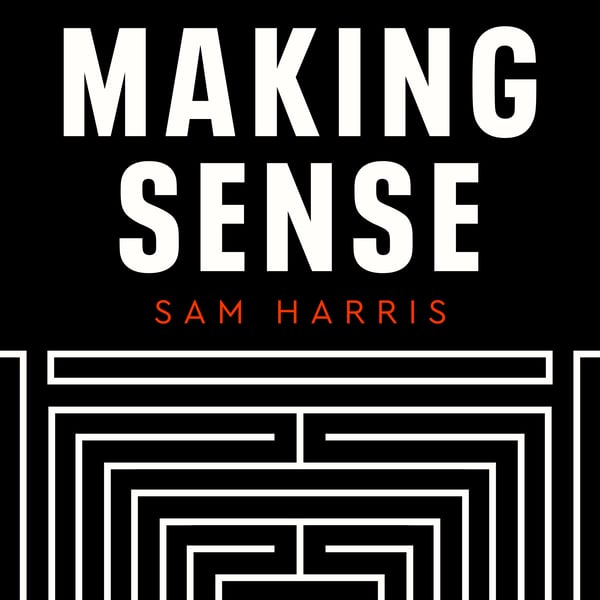#151 — Will We Destroy the Future?
Making Sense with Sam Harris
Waking Up with Sam Harris
4.6 • 29.1K Ratings
🗓️ 18 March 2019
⏱️ 33 minutes
🧾️ Download transcript
Summary
Sam Harris speaks with Nick Bostrom about the problem of existential risk. They discuss public goods, moral illusions, the asymmetry between happiness and suffering, utilitarianism, "the vulnerable world hypothesis," the history of nuclear deterrence, the possible need for "turnkey totalitarianism," whether we're living in a computer simulation, the Doomsday Argument, the implications of extraterrestrial life, and other topics.
SUBSCRIBE to listen to the rest of this episode and gain access to all full-length episodes of the podcast at samharris.org/subscribe.
Transcript
Click on a timestamp to play from that location
| 0:00.0 | Welcome to the Making Sense Podcast. This is Sam Harris. Just a note to say that if you're |
| 0:12.1 | hearing this, you are not currently on our subscriber feed and will only be hearing |
| 0:16.2 | the first part of this conversation. In order to access full episodes of the Making Sense |
| 0:20.7 | Podcast, you'll need to subscribe at samharis.org. There you'll find our private RSS feed |
| 0:26.1 | to add to your favorite pod catcher, along with other subscriber-only content. We don't run ads |
| 0:31.2 | on the podcast, and therefore it's made possible entirely through the support of our subscribers. |
| 0:35.8 | So if you enjoy what we're doing here, please consider becoming one. |
| 0:46.9 | Welcome to the Making Sense Podcast. This is Sam Harris. |
| 0:50.1 | Today I am speaking with Nick Bostrom. Nick is someone I've been hoping to get on the podcast |
| 0:57.2 | for quite some time. He is a Swedish-born philosopher with a background in theoretical physics |
| 1:05.0 | and computational neuroscience and logic and AI and many other interesting, |
| 1:12.0 | intersecting topics. But officially he's a professor of philosophy at Oxford University, |
| 1:17.6 | where he leads the Future of Humanity Institute. This organization is a research center |
| 1:26.2 | which is focused largely on the problem of existential risk. Today we get deep into his views |
| 1:32.8 | on existential risk by focusing on three of his papers, which I'll describe in our conversation. |
| 1:39.8 | We talk about what he calls the vulnerable world hypothesis, which gets us into many interesting |
| 1:47.8 | tangents with respect to the history of nuclear deterrence and the possible need for what he calls |
| 1:55.5 | turnkey totalitarianism. We talk about whether we're living in a computer simulation. He's the |
| 2:01.6 | father of the now famous simulation argument. We talk about the Doomsday argument, which is not his, |
| 2:07.6 | but it's one of these philosophical thought experiments that have convinced many people that we |
| 2:12.8 | might be living close to the end of human history. We talk about the implications of there being |
| 2:18.6 | extraterrestrial life out there in the galaxy and many other topics, but all of it is focused on |
... |
Please login to see the full transcript.
Disclaimer: The podcast and artwork embedded on this page are from Waking Up with Sam Harris, and are the property of its owner and not affiliated with or endorsed by Tapesearch.
Generated transcripts are the property of Waking Up with Sam Harris and are distributed freely under the Fair Use doctrine. Transcripts generated by Tapesearch are not guaranteed to be accurate.
Copyright © Tapesearch 2025.

